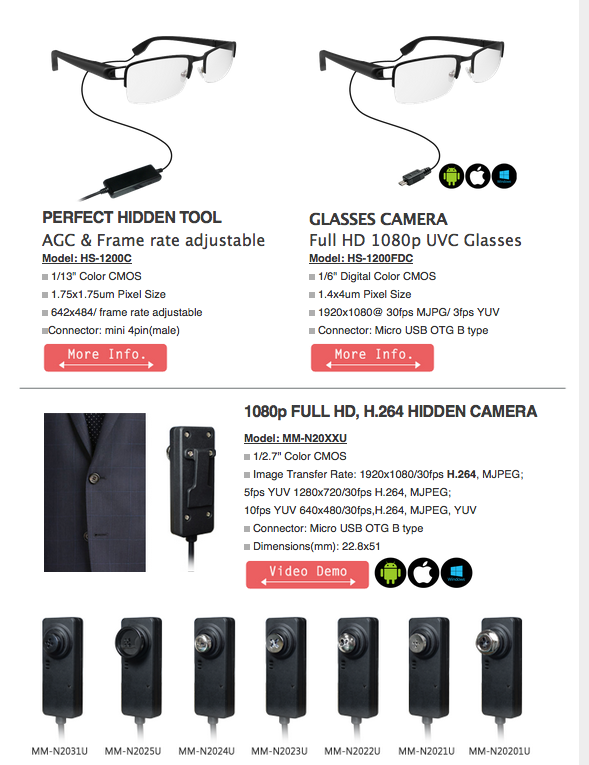Q. How did you come to be in PI?
A. A long time ago, I interviewed Jackie Mason for my college radio station and phrased a similar question to him. He stopped me and said, "don't ask
how, ask
why, that's what's interesting." I never forgot it.
With that in mind... The short story is I had a high school interest in radio-electronics. During college, I took a summer job in law enforcement which involved surveillance electronics. Really interesting! I switched majors from mass media to criminal justice. I obtained employment as a private investigator with Pinkertons Inc. (where I got to use surveillance equipment and concoct custom surveillance solutions). I advanced to become the director of their commercial investigations department in NJ, and then director of their electronic countermeasures department worldwide. In 1978, I opened my own firm specializing in electronic countermeasures (aka Technical Surveillance Countermeasures or TSCM). "How," was just a pinball path of following my interests and being ready to take advantage of opportunities that came my way. "Why," because I am inquisitive, fascinated by technology, and most of all, I like helping people solve their problems.
Q. What kind of services do you/company offer?
A.
• TSCM; detecting electronic surveillance devices for business and government.
• Counterespionage consulting; providing advice to help detect and deter business espionage.
• Training;
specialized training for keeping the workplace free from video voyeurism.
• Smartphone spyware detection and prevention; a
book, an
Android app, an
iPhone app and a smartphone anti-spyware
security kit.
Q. What is your day-to-day routine like?
A. There is nothing routine about my day except that every day is a work day. I'm not sure whether this is a factor of being in one's own business, or this particular business demands it. We are available to our clients 24/7, including holidays and weekends. Vacations are taken during slow periods, usually 7-10 days, once or twice a year. The days are divided into two types, office days and field days, when my team and I are conducting inspections for our clients. On office days the work includes: report writing, invoicing, marketing, servicing instrumentation, working on research projects for clients, bookkeeping, creation of books, training, apps, etc.
Q. How has technology affected your day to day, if at all, in recent months/years?
A. My business is heavily technology oriented. Technology change always affects what we do, how we do it, and what new countermeasures we need to develop to keep ahead-of-the-curve. People mistakenly believe that technology changes the things on which we focus. Wrong. It adds to them. All prior espionage techniques still work, and are still used. Spies just have more tricks in the black bag these days.
Q. What is the biggest misconception about being a PI?
A.
(Laughter) Pretty much everything you see on TV and the movies. Having
worked in all aspects of private investigations before settling into my
specialization, I can generalize and say... "Private investigations has a
very long flash to bang ratio." That is to say, any investigation
involves long periods of quiet work before the last 5% of excitement.
That being said, the extremely well-worth-the-wait excitement reward is an intense bit at the end. The greater
reward is the satisfaction of having helped someone. That part lasts,
and accumulates.
Q. Is there a particular issue facing your industry as a group that you’re concerned with right now?
A. Yes. Video voyeurism in the workplace is the hottest issue around right now. The problem started gaining logarithmic traction about 10-15 years ago. In the past year, the epidemic hit critical mass. I began receiving "what can we do" calls from my clients, similar to the flood of calls about cell phone spyware which prompted the book, app and security kit. At first, places like small businesses, private schools and country clubs called us in to conduct inspections. Once our larger clients began to call, it became obvious that sending us to check restrooms and changing rooms at all their locations (around the world in some cases) was impractical. The solution was to develop an
on-line training course for their local security and facilities people.
Q. Why do you think video voyeurism reached critical mass in the last year?
A. Two factors...
1. Over the years, spy cameras have evolved from cheap low-resolution devices, to inexpensive, well-made, high-resolution devices.
2. Voyeurs have also evolved. The early video voyeurs targeted areas over which they had full control, e.g. their bedrooms, bathrooms. Emboldened by these successes, they began to include semi-controllable area targets, e.g. significant others' bedroom and bathrooms, and we also started to see media reports about landlords spying on their tenants.
Keep in mind, any media report about video voyeurism represents a failed (discovered) attack; the majority of video voyeurs are successful.
The next target expansion happened when these people began to coagulate
on-line, swapping video files, war stories, and how-to tutorials on
YouTube.
Now, emboldened by previous successes, camaraderie, better technology, and honed tradecraft, their hunting grounds expanded to business locations with public expectation-of-privacy areas – restrooms, changing rooms, locker rooms / showers, tanning salons, etc. Huge mistake.
In the past year or so, enough video voyeurs have been caught in
corporate venues (Walmart, Starbucks, for example) to make this a legal
"foreseeability" issue, with sexual harassment in the workplace
implications. The dollar losses — employee morale, business goodwill, reputation and lawsuits — tipped the scales. Invading the corporate landscape was the final straw. With big money at stake, businesses beginning to fight back.
 It's a Bluetooth wireless remote control for smartphones (iOS & Android). Basically made for the selfie crowd, investigators will find applications for it as well. Not bad for a buck.
It's a Bluetooth wireless remote control for smartphones (iOS & Android). Basically made for the selfie crowd, investigators will find applications for it as well. Not bad for a buck.

















